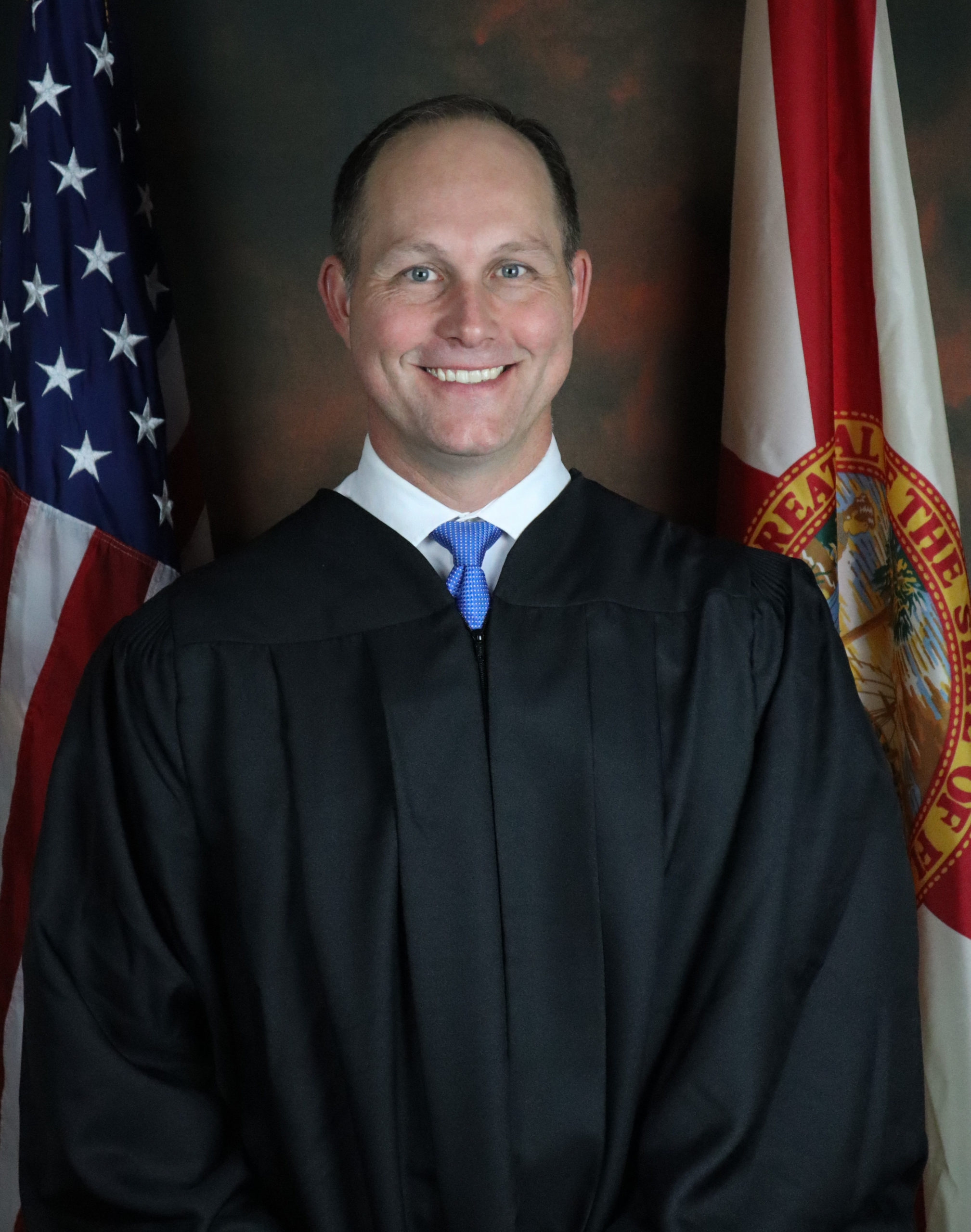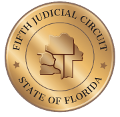Judge McCourt was appointed to the Circuit Court by Governor Ron DeSantis on December 18, 2023. He assumed office on January 3, 2024.
Prior to Judge McCourt’s appointment to the Circuit Court, he was employed for five years by the Marion County Sheriff’s Office, where he served as General Counsel and as a Deputy Sheriff. Before that, he worked as an Assistant State Attorney in the Fifth Judicial Circuit for 10 years, where he was assigned to Marion, Citrus, and Sumter Counties. His assignments with the State Attorney’s Office included the supervision of a felony division where he was responsible for cases involving homicide, death to persons, 10/20/Life penalties, drug trafficking, career criminals, and other complex matters. Judge McCourt also spent two years in private practice at a small law firm in Tavares (Lake County) where his private practice consisted primarily of family law and civil litigation but also included criminal defense and appeals.
Judge McCourt received his law degree, with honors, in 2007, from the University of Florida Levin College of Law. He received undergraduate degrees in Political Science and Sociology, with honors, in 2003, from the Florida State University. Judge McCourt graduated from the College of Central Florida Law Enforcement Academy (Class #193) where he received the K.C. Alvarez Award for highest academic achievement.
Judge McCourt has been an active member of the legal community in the Fifth Judicial Circuit. He currently serves on the Fifth Judicial Circuit’s Local Professionalism Panel and is a member of the Lake County Bar Association and Marion County Bar Association. Judge McCourt is also a member of the Federalist Society for Law and Public Policy Studies.
Judge McCourt is a past-President of the Marion County Bar Association and the D.R. Smith American Inn of Court. He previously served as Chair of the Florida Bar’s Grievance Committee for the Fifth Judicial Circuit, as a member of the Florida Bar’s Unlicensed Practice of Law Committee for the Fifth Judicial Circuit, and as a lawyer member of the Bench-Bar Committee of the United States District Court for the Middle District of Florida. Until his appointment to the judiciary, he served on the Board of Directors of Heart of Florida Health Center, Inc., a non-profit health center with locations in Marion and Sumter Counties. From 2015 to 2021, he was the Volunteer Judge for Marion County’s Juvenile Drug Court Program and from 2008 to 2020, he volunteered with the Fifth Judicial Circuit’s Teen Court programs in Lake, Marion, and Sumter Counties.
In 2018, Judge McCourt was awarded the Anti-Defamation League’s (ADL) Doris and Murray Felton Excellence in Law Enforcement Award for his work prosecuting radicalized individuals who sympathized with terrorist organizations and had taken steps towards carrying out acts of violence against Ocala residents, the local Jewish community, and the State of Israel.

